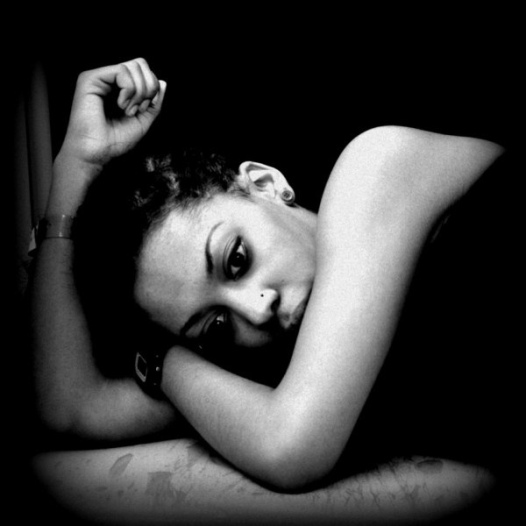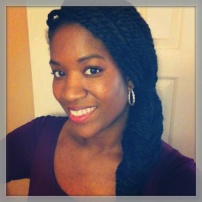Minute Mentor is a series of posts profiling real people achieving their dreams. It began with the simple idea that “seeing is being.” When cofounders Rick and Faye’s oldest son was born, it was clear he was musically inclined. He was playing piano by ear at age 4 and neither of them ever even picked up an instrument! When Faye remembered an old neighbor who had gone on to become a Julliard trained musician, she immediately reached out to him and said, “What do we do?” He patiently answered all of her questions on how best to nurture her budding musician.
Minute Mentor provides a space for real people to tell their stories so if you or your little one is in search of mentorship on how to achieve their dreams, you can look no further than right here! Sometimes the best inspiration comes from seeing someone that looks like you achieving similar goals.
If you have any questions or comments for the featured guest, leave a comment, and we will do our best to bring it to their attention! Happy imagining!

Name: Shameeka Mattis-Pinard, LMSW
Age: 35
Occupation: Social Worker
Education: Master’s Social Work ’05 University of Pennsylvania; Bachelor’s Degree (English & Sociology) ’03 SUNY Binghamton
Career Level:
- Entry
- Mid-level
- Executive
- Entrepreneur
- Retired
How hard do you work?
- Lots of Leisure Time
- Typical 40-50hr Workweek
- More than Average
- I never stop working
Lifestyle/Income:
- Side Hustle/Didn’t Quit My Day Job
- Getting By
- My bills are Paid with Some Room for Fun
- You get a car! You get a car!
Tell us a little about yourself. Where are you from?
I’m from Fort Greene, Brooklyn. I was raised in the Ingersoll House i.e. “the projects.” I currently reside in NYC. I’m a creative music lover, married and love my puppy.
What kind of student were you?
Since I can remember, I was an A student when I applied myself, but an A-/B+ student when I procrastinated or didn’t study well, which was often. I was always curious, questioning, intrigued by learning, a strong writer, and creative. I was rowdy and talkative, but astute. So, [I was] a cool brainiac that would fight or flip at the drop of a dime, but whom teachers loved and scolded equally. I also made friends with everyone and have some of those friendships to this day.
I was a rough kid with a sharp mind and even sharper mouth, but I believed I could be successful because [my] mentors were my daily examples.
Describe your current job/jobs.
I’m the Director of Programs for a victim service and alternative to incarceration program based in restorative justice in NYC for young adults who commit violent crime. Responsible parties get a chance to make amends with the people they hurt and instead of going to prison, they remain free without felonies on their records if they complete the program. I supervise the counselors, develop anti-violence curriculum, interface with the courts, set organizational policies, and build community partnerships. I’m also a motivational speaker, educator and writer.
What education level is required for your job? Tests? Certificates? Years of School?
A master’s is required for my position. College graduates from the associate to bachelor level are employed where I work. However, having a Master of Social Work degree enabled me to make more decisions, have great autonomy, supervise anyone, have leverage and get paid very well.
Did you have a mentor/mentors? How did you meet?
To this day, I’m still in contact with my mentors and close to many of them. Since I was age 3 or 4, I had mostly Black women in my life that helped me discover myself, love myself, aim high and never settle. I was a rough kid with a sharp mind and even sharper mouth, but I believed I could be successful because these mentors were my daily examples. I met most mentors in school, but a few connected with me when I attended church and recreational activities.
How did you get your current job?
I worked in criminal justice in Philadelphia after finishing graduate school, grew tired of those particular jobs and wanted to move back to NYC, particularly to Brooklyn, where I knew my field had innovative opportunities. I also knew I deserved more money and had talents to expand upon, so I spoke to friends & former professors that encouraged me to consider a prominent criminal justice advocacy and research agency. When I received an interview, I researched the agency and program, brought my A-game, and the rest is history. I began my job the day after I helped to elect President Obama to his first term, so that helped it feel extra special. Talk about a fresh start!
It’s difficult but life-changing work, so I surround myself with people who are good at what they do and who push me to be great.
Is your job family-friendly?
Yes, it is. Plenty of children are welcome and other family members too. I’ve even been able to bring my dog to work.
Do you find your work fulfilling?
It is fulfilling, but not just because I get to work with incredible young adults, or because of the impact I’m able to make in their lives. It’s fulfilling because I aim to do my best, ask for and accept feedback, hold myself to the same standards I request of others, including my clients, and I have fun along the way whenever possible. It’s difficult but life-changing work, so I surround myself with people who are good at what they do and who push me to be great. I work hard, so my social network of family and friends helps me stay balanced.
Did you always know you wanted to pursue your current career path?
I was naturally drawn to justice work, teaching and counseling as a kid, but I also like to help solve difficult issues. So I was convinced I would pursue many careers, but social work just seemed portable and full of options by the time I was a junior in college. I genuinely liked its principles. So far, I’m not disappointed in the choices I made and path I took. I stay open to all opportunities because I have many skills and know how to make connections with anyone.
To all my young people, think of the problems you want to solve, not what you want to be or do. Have fun, learn how to communicate effectively, and remember that you are limitless.
What, if any, setbacks have you faced? How did you overcome them to accomplish your goals?
I used to fight daily as a kid. Then I argued all the time because I always thought I was right and didn’t know my worth or appreciate other’s differences. I developed a healthy self-esteem in spite of my poverty as a young black girl and I channeled my talents through academics and sports, surrounding myself with people who encouraged me to shine. I learned how to be humble. I was the first person in my family to graduate college and that was huge because both my parents were functionally illiterate and didn’t finish high school. However, my mom died right after I graduated from college, and I grieved her absence a long time before learning to accept that death is a part of life. It [was] then [that] I remembered the gifts she instilled in me and understood how they would never leave me. I don’t forget the people who helped me and the gifts God gave me to share with the world. I am diligent about asking for help from those closest to me when needed and I keep it real no matter where I go.
What advice would you give a parent of a child/young adult interested in pursuing a job in your field? What advice would you give them on pursuing any career goal?
Don’t push your children to do ANYTHING. Be patient. Encourage their curiosity, support their uniqueness and praise them for incremental efforts and success. Your child is not one size fits all. Also, your children are not carbon copies of you because they were born as whole people with dreams and purpose. To all my young people, think of the problems you want to solve, not what you want to be or do. Have fun, learn how to communicate effectively, and remember that you are limitless. Don’t rush to grow up. Have authentic relationships with yourself and others and be honest with yourself always. Surround yourself with people who are doing productive things because you gain motivation from their success and it generates your own.
***
About The Author
Faye McCray is an attorney by day and writer all the time. Her work has been featured on My Brown Baby, AfroPunk, AfroNews, For Harriet, Madame Noire, Black Girl Nerds, Black and Married with Kids, and other popular publications. Faye also has a number of short stories and a full length novel available for purchase on Amazon. Most importantly, Faye is a proud wife and mother to three beautiful and talented young boys who she is fiercely passionate about raising. You can find Faye on Twitter @fayewrites and on the web at fayemccray.com.
attorney by day and writer all the time. Her work has been featured on My Brown Baby, AfroPunk, AfroNews, For Harriet, Madame Noire, Black Girl Nerds, Black and Married with Kids, and other popular publications. Faye also has a number of short stories and a full length novel available for purchase on Amazon. Most importantly, Faye is a proud wife and mother to three beautiful and talented young boys who she is fiercely passionate about raising. You can find Faye on Twitter @fayewrites and on the web at fayemccray.com.







 attorney by day and writer all the time. Her work has been featured on
attorney by day and writer all the time. Her work has been featured on